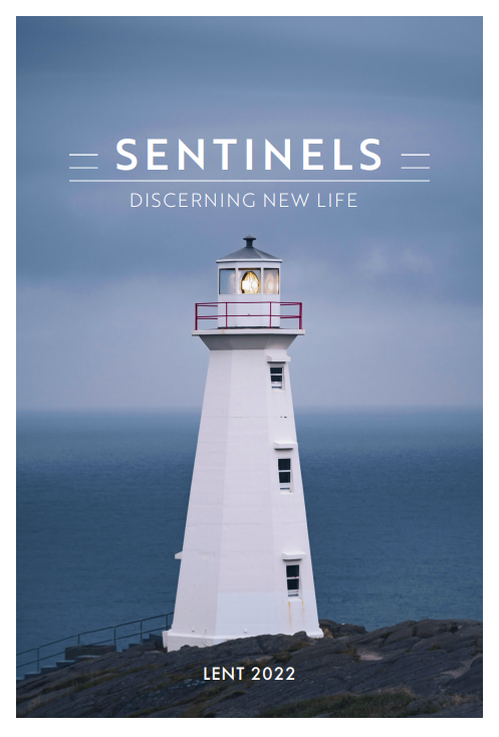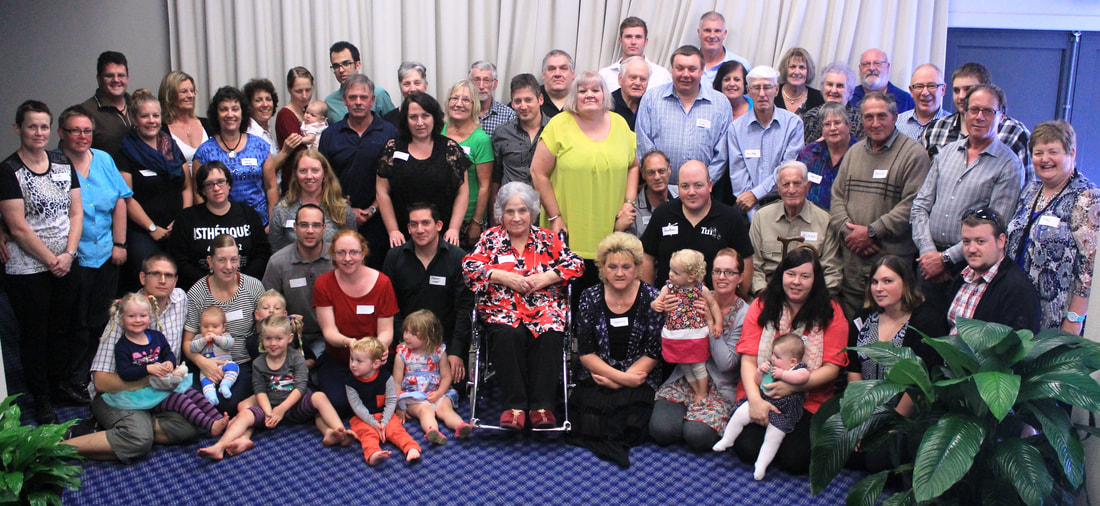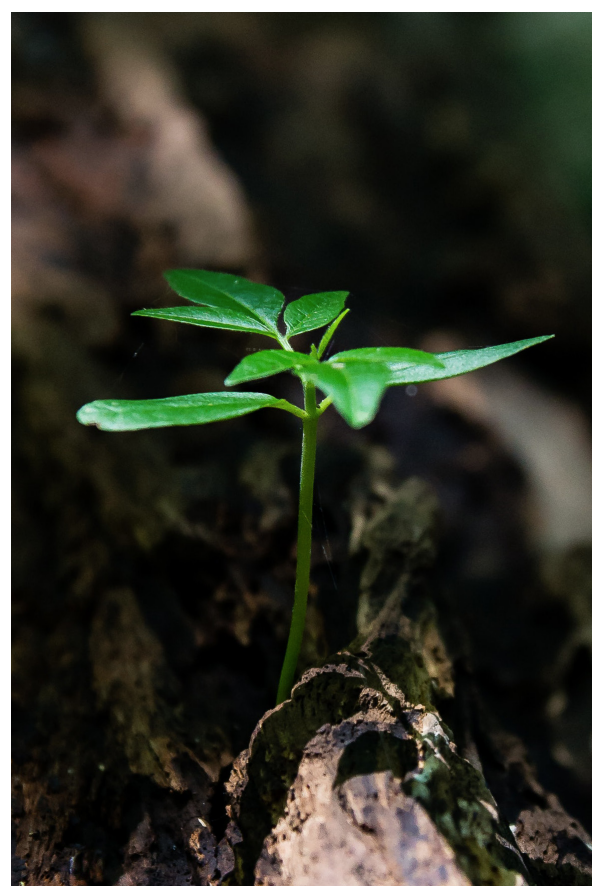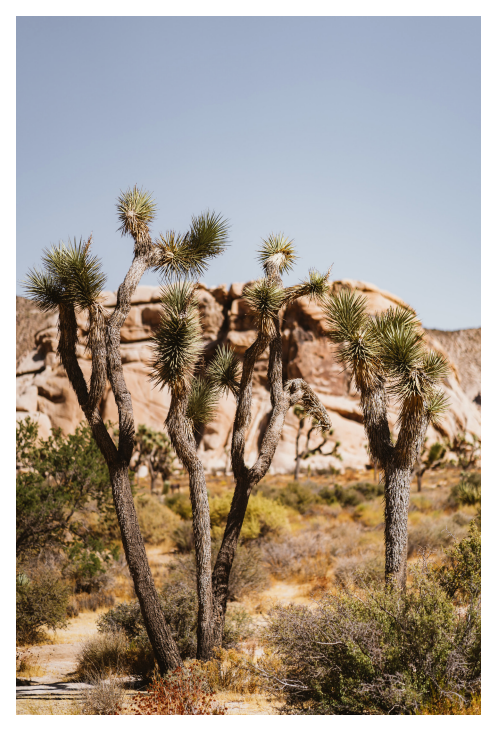DISCUSSIONS IN LENT
|
“What’s a sentinel?”
In Scripture, we read of sentinels as people stationed on a wall or tower, keeping watch for approaching danger – either over towns, or over fields or vineyards. The prophets of the Old Testament sometimes described themselves as sentinels; listening for the will of God and speaking that out – in warning or encouragement - to God’s people. As Jesus people, we too have the task of being sentinels. Jesus regularly reminds us to keep watch and be vigilant, and also that we are the signposts of new life and hope – the lamp on the hill - of God’s transformation to the people and places we inhabit. But how do we discern where that new life is, and what it looks like? How do we, as individuals and as a body, choose life and help others to do the same? How to Use this Guide As you do this journey, stay accountable to each other. Share and discuss each week what God might be saying to you individually and what you might be invited to do about it, and check in with each other next time to see how you got on. You can find a tool to help you do this on the opposite page, or watch the video at: https://www.youtube.com/watch?v=dODTPgVGNAg The Kairos Circle The Kairos Circle is a great tool for your Lent small group, and as a practice for learning to hear from God in everyday life: discerning what God might be saying, and what you are going to do about it. We encourage you to use it prior to prayer as you conclude each session. Have a look at Bishop Ellie’s teaching video on the tool at: https://bit.ly/3BI0pgr | ||||||
SESSION 5 - 6 APRIL 2022
Fruitful Repentance
|
Luke 13:1-19 - Contemporary English Version
Turn Back to God 13 About this same time Jesus was told that Pilate had given orders for some people from Galilee to be killed while they were offering sacrifices. 2 Jesus replied: Do you think that these people were worse sinners than everyone else in Galilee just because of what happened to them? 3 Not at all! But you can be sure that if you don't turn back to God, every one of you will also be killed. 4 What about those 18 people who died when the tower in Siloam fell on them? Do you think they were worse than everyone else in Jerusalem? 5 Not at all! But you can be sure that if you don't turn back to God, every one of you will also die. A Story about a Fig Tree 6 Jesus then told them this story: A man had a fig tree growing in his vineyard. One day he went out to pick some figs, but he didn't find any. 7 So he said to the gardener, “For three years I have come looking for figs on this tree, and I haven't found any yet. Chop it down! Why should it take up space?” 8 The gardener answered, “Master, leave it for another year. I'll dig around it and put some manure on it to make it grow. 9 Maybe it will have figs on it next year. If it doesn't, you can have it cut down.” Healing a Woman on the Sabbath 10 One Sabbath, Jesus was teaching in a synagogue, 11 and a woman was there who had been crippled by an evil spirit for 18 years. She was completely bent over and could not straighten up. 12 When Jesus saw the woman, he called her over and said, “You are now well.” 13 He placed his hands on her, and at once she stood up straight and praised God. 14 The man in charge of the synagogue was angry because Jesus had healed someone on the Sabbath. So he said to the people, “Each week has six days when we can work. Come and be healed on one of those days, but not on the Sabbath.” 15 The Lord replied, “Are you trying to fool someone? Won't any one of you untie your ox or donkey and lead it out to drink on a Sabbath? 16 This woman belongs to the family of Abraham, but Satan has kept her bound for 18 years. Isn't it right to set her free on the Sabbath?” 17 Jesus' words made his enemies ashamed. But everyone else in the crowd was happy about the wonderful things he was doing. A Mustard Seed and Yeast 18 Jesus said, “What is God's kingdom like? What can I compare it with? 19 It is like what happens when someone plants a mustard seed in a garden. The seed grows as big as a tree, and birds nest in its branches.” |
Gendy Thomson asks in this discussion,
"So what does our scripture passage [Luke 13] have for us in relation to the idea of this year’s Lent study Sentinels: Discerning New Life? I believe a lot. It seems to me timely to observe what is happening in our world: a virus crisis with so much pain, loss of life, and fear. A climate crisis with so much finger-pointing, inaction and fear. Political crises in various countries creating death, separation, and fear. [This text was written before the current Russo-Ukranian war]! Mental health crises creating so much mental and emotional pain, loss of ability to enjoy and engage in life, hardship of body, mind, and spirit. I could go on, and we can all name crises that are close to home: in our lives, our neighbours’ lives, or our community." Having read and digested the Luke passage, two challenges are before us:
God our creator
turn our minds to so that we might live into your purposes turn our minds from what would hold us back so that we might live in freedom turn our minds to Jesus so that our thoughts are ruled by love. Let’s Discuss Let’s Pray Let's be fruitful and make disciples Amen. |
SESSION 4 - 30 MARCH 2022
Okay Boomer
|
This session invites us to think inter-generationally. It is suggested that the term "Okay Boomer" was coined as a way of pitching the Millennial and Gen Z generations against the older Baby Boomers. Was this the end of friendly generational relationships?
The New Testament parable of the "Prodigal Son" examines two generations and offers a commentary on the good and not so good of father and son relationships. The Church is designed to be a place of intergenerational accommodation. It isn't always that in practice. Sometimes we loose sight of how good it is to be together inter-generationally. The image below relates to a gathering of my extended whanau during Easter 2015. This reunion and a much bigger one that preceded it in 1995, reminded us all of the joy of being together across the generations. The more so when we look back and realise that the two elderly ones sitting died within a few months of this event. |
Luke 15:11-31 - Two Sons
Jesus told them yet another story: Once a man had two sons. The younger son said to his father, “Give me my share of the property.” So the father divided his property between his two sons. Not long after that, the younger son packed up everything he owned and left for a foreign country, where he wasted all his money in wild living. He had spent everything, when a bad famine spread through that whole land. Soon he had nothing to eat. He went to work for a man in that country, and the man sent him out to take care of his pigs. He would have been glad to eat what the pigs were eating, but no one gave him a thing. Finally, he came to his senses and said, “My father's workers have plenty to eat, and here I am, starving to death! I will go to my father and say to him, ‘Father, I have sinned against God in heaven and against you. I am no longer good enough to be called your son. Treat me like one of your workers.’ ” The younger son got up and started back to his father. But when he was still a long way off, his father saw him and felt sorry for him. He ran to his son and hugged and kissed him. The son said, “Father, I have sinned against God in heaven and against you. I am no longer good enough to be called your son.” But his father said to the servants, “Hurry and bring the best clothes and put them on him. Give him a ring for his finger and sandals for his feet. Get the best calf and prepare it, so we can eat and celebrate. This son of mine was dead, but has now come back to life. He was lost and has now been found.” And they began to celebrate. The older son had been out in the field. But when he came near the house, he heard the music and dancing. So he called one of the servants over and asked, “What's going on here?” The servant answered, “Your brother has come home safe and sound, and your father ordered us to kill the best calf.” The older brother got so angry that he would not even go into the house. His father came out and begged him to go in. But he said to his father, “For years I have worked for you like a slave and have always obeyed you. But you have never even given me a little goat, so that I could give a dinner for my friends. This other son of yours wasted your money on prostitutes. And now that he has come home, you ordered the best calf to be killed for a feast.” His father replied, “My son, you are always with me, and everything I have is yours. But we should be glad and celebrate! Your brother was dead, but he is now alive. He was lost and has now been found.” |
What can we do to strengthen inter-generational relationships in our Church, family, community or nation?
SESSION 3 - 23 MARCH 2022
The Lost Art of God Conversations
|
Dean David reminds us that new found love cannot help but express itself to others. If we do not have enthusiastic new Christians who have recently fallen in love with Jesus in our Church, it is likely we will have difficulty recruiting new Christians... Do you agree with this statement? Whether you agree or not I invite you to look at the video below and think again.
|
Luke 7:36-50 - Contemporary English Version Bible
Simon the Pharisee A Pharisee invited Jesus to have dinner with him. So Jesus went to the Pharisee’s home and got ready to eat. When a sinful woman in that town found out that Jesus was there, she bought an expensive bottle of perfume. 38 Then she came and stood behind Jesus. She cried and started washing his feet with her tears and drying them with her hair. The woman kissed his feet and poured the perfume on them. The Pharisee who had invited Jesus saw this and said to himself, “If this man really were a prophet, he would know what kind of woman is touching him! He would know that she is a sinner.” Jesus said to the Pharisee, “Simon, I have something to say to you.” “Teacher, what is it?” Simon replied. Jesus told him, “Two people were in debt to a moneylender. One of them owed him five hundred silver coins, and the other owed him fifty. Since neither of them could pay him back, the moneylender said that they didn’t have to pay him anything. Which one of them will like him more?” Simon answered, “I suppose it would be the one who had owed more and didn’t have to pay it back.” “You are right,” Jesus said. He turned toward the woman and said to Simon, “Have you noticed this woman? When I came into your home, you didn’t give me any water so I could wash my feet. But she has washed my feet with her tears and dried them with her hair. You didn’t greet me with a kiss, but from the time I came in, she has not stopped kissing my feet. You didn’t even pour olive oil on my head, but she has poured expensive perfume on my feet. So I tell you that all her sins are forgiven, and that is why she has shown great love. But anyone who has been forgiven for only a little will show only a little love.” Then Jesus said to the woman, “Your sins are forgiven.” Some other guests started saying to one another, “Who is this who dares to forgive sins?” But Jesus told the woman, “Because of your faith, you are now saved. May God give you peace!” |
I HAVE DECIDED TO FOLLOW JESUS - HAVE YOU? (Regardless of the Cost?)
SESSION 2 - 16 MARCH 2022
|
As we begin our second session following the theme, "Signs of Life in Loss"
I invite you first to read the scripture below and then listen to the song, "Open the Eyes of My Heart Lord." Christianity is a religion and faith of the heart I would suggest, before it is a religion of the mind. It's invitation to enter into relationship with the God who has passion and is compassionate precedes the call to make intellectual sense of it. Abraham Heschel today seems to me to be inviting us to discover, or to rediscover, the affectionate God of the heart whose heartbeat is for all who suffer and who seek to serve with justice, truth, love, compassion and understanding.
As you consider your own loss or losses today, along with Heschel's, may I suggests you consider afresh how and where God's heart is in relation to your experience of suffering. Does it matter or make a difference when you consider that the compassionate God feels your loss intensely? Luke 9:28-36 The Transfiguration
Now about eight days after these sayings Jesus took with him Peter and John and James, and went up on the mountain to pray. And while he was praying, the appearance of his face changed, and his clothes became dazzling white. Suddenly they saw two men, Moses and Elijah, talking to him. They appeared in glory and were speaking of his departure, which he was about to accomplish at Jerusalem. Now Peter and his companions were weighed down with sleep; but since they had stayed awake, they saw his glory and the two men who stood with him. Just as they were leaving him, Peter said to Jesus, "Master, it is good for us to be here; let us make three dwellings, one for you, one for Moses, and one for Elijah" -- not knowing what he said. While he was saying this, a cloud came and overshadowed them; and they were terrified as they entered the cloud. Then from the cloud came a voice that said, "This is my Son, my Chosen; listen to him!" When the voice had spoken, Jesus was found alone. And they kept silent and in those days told no one any of the things they had seen. |
"Read pages 13-16 in the PDF file, or the booklet, which are the discussion notes for session 2, which focuses on the 20th Century Jewish prophet Abraham Heschel. His insights into how the prophet hears and responds to the heart of God is well expressed at the bottom on p. 15, "The prophet," he suggests, “suffers in himself harms done to others, whose greatest passion is compassion, whose greatest strength is love and defiance of despair.”
How do your respond to these words in p.16, 'We must see ourselves, he urged, as “not only an image of God” but a “perpetual concern of God … a consort, a partner, a factor in the life of God”. We encounter God “within a situation of shared suffering, of shared responsibility.”'
|






